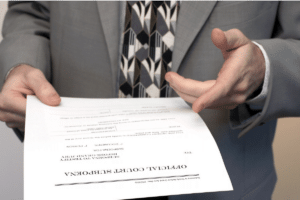

As you’re likely aware, attorneys must take an oath before gaining the privilege to practice law. This oath mandates their commitment to uphold the Constitution of the United States and the Constitution of the State of California. It emphasizes the importance of conducting themselves with dignity, courtesy, and integrity. Like a fiduciary responsibility, it also charges them to exert their best efforts, vowing to “faithfully discharge the duties of an attorney and counselor at law to the best of [their] knowledge and ability.” This can be likened to an attorney’s version of the Hippocratic Oath.
We know that attorneys and paralegals genuinely strive to represent their clients’ best interests; however, execution of this commitment can be difficult. The size of the case, the scope of what needs to be done, time, or lack thereof, among other factors, can be monumental roadblocks prohibiting best efforts. While there are many such challenges that may impede the seamless execution of legal responsibilities, we would like to focus on one area specifically, that we are confident in our abilities to assist our clients with – foreign deposition subpoenas and service.
Discussed in this article:
In short, a foreign deposition subpoena is a legal document that allows a party in one state to subpoena discovery or testimony from someone in another state. This process can be accomplished within the 50 states and U.S. territories, but can also be used to obtain discovery internationally.
As residents of the United States spread out across the country, they often relocate for various reasons. However, many may not be aware that by moving to a new state, they subject themselves to an entirely new set of laws and regulations governing state jurisdiction. While this may not pose immediate issues for the new resident, it can significantly impact legal proceedings originating in the state they have moved from.
In today’s global economy, commerce frequently occurs across state lines. Businesses based in California, for instance, may have suppliers operating in various states across the country. Under normal circumstances, when business operations proceed smoothly without complications or disagreements, it’s business as usual. However, we don’t live in a world where everything goes according to plan 100 percent of the time. Disagreements arise, contracts get breached, and parties may suffer damages.
As legal proceedings unfold, the need for discovery becomes inevitable. However, when dealing with subpoenas issued in different states, matching legal jurisdiction in the state where they are served can cause significant challenges to arise. While you can opt to serve your state’s subpoena and hope for compliance from the opposing party, a more robust solution exists. Empower your subpoena with the authority it needs to ensure proper execution – serve a domesticated foreign deposition subpoena.
Here’s where things get complicated. The truth is, that currently there is no universally accepted process for obtaining discovery in another state. However, as of the writing of this article, 46 states have adopted the Uniform Interstate Depositions and Discovery Act (UIDDA) of 2007 . Additionally three other states – Texas, Missouri, and Rhode Island – have introduced legislation to adopt it. Passage is not guaranteed and must still navigate the legislative processes in each state. If the proposed legislation were adopted in these three states, New Hampshire would be the final holdout. Outside of the states themselves, U.S. territories should also adopt the UIDDA; for example, the U.S. Virgin Islands have adopted the act, but Puerto Rico has not. In most instances, Federal Rule of Civil Procedure Rule (45) can be used to domesticate a subpoena in U.S. territories.
After the out-of-state subpoena has been domesticated within the jurisdiction of the state where service must take place, specific laws and procedures come into effect. While not all states are the same, in most cases, the jurisdiction of the court (state) where the action was filed becomes the rule of law governing that subpoena. State service of process rules vary widely, so it’s crucial to familiarize yourself with local process service requirements. Alternatively, let Bosco Legal Services handle the Service of Process for you.
With over 35 years in the business and a vast network of professional associates across all 50 states, Bosco Legal is well-equipped to assist you with your foreign deposition service needs. Here are just a few of the reasons why choosing Bosco Legal could be the right decision for you:
1. Time Efficiency : Your time is valuable. Let Bosco Legal prepare and issue your next subpoena. Our expert team is skilled in subpoena preparation, handling the entire legal process for you, from preparation to mailing notices to opposing counsel, conducting the follow-up and on-site record copying and reproduction.
2. Tailored Solutions: Recognizing that there’s no one-size-fits-all approach to foreign deposition subpoenas, Bosco Legal understands the uniqueness of each client’s needs. Our approach is personalized, leveraging best-in-class knowledge and service to meet the specific requirements and preferences of our customers.
3. Comprehensive Legal Support: Bosco Legal is a full-service legal support provider, addressing various important needs you may have. Whether it’s serving a foreign subpoena, obtaining medical records, or providing investigative services, we have you covered. From process serving and court filing to social media investigations and asset searches, Bosco Legal Services is your one-stop solution.
Drop us an email or give us a call and ask us how Bosco Legal Services can best serve you and your clients today.